NOTES ABOUT NOW
NOTES ABOUT NOW
An evening of poetry and music
Kings Place, London
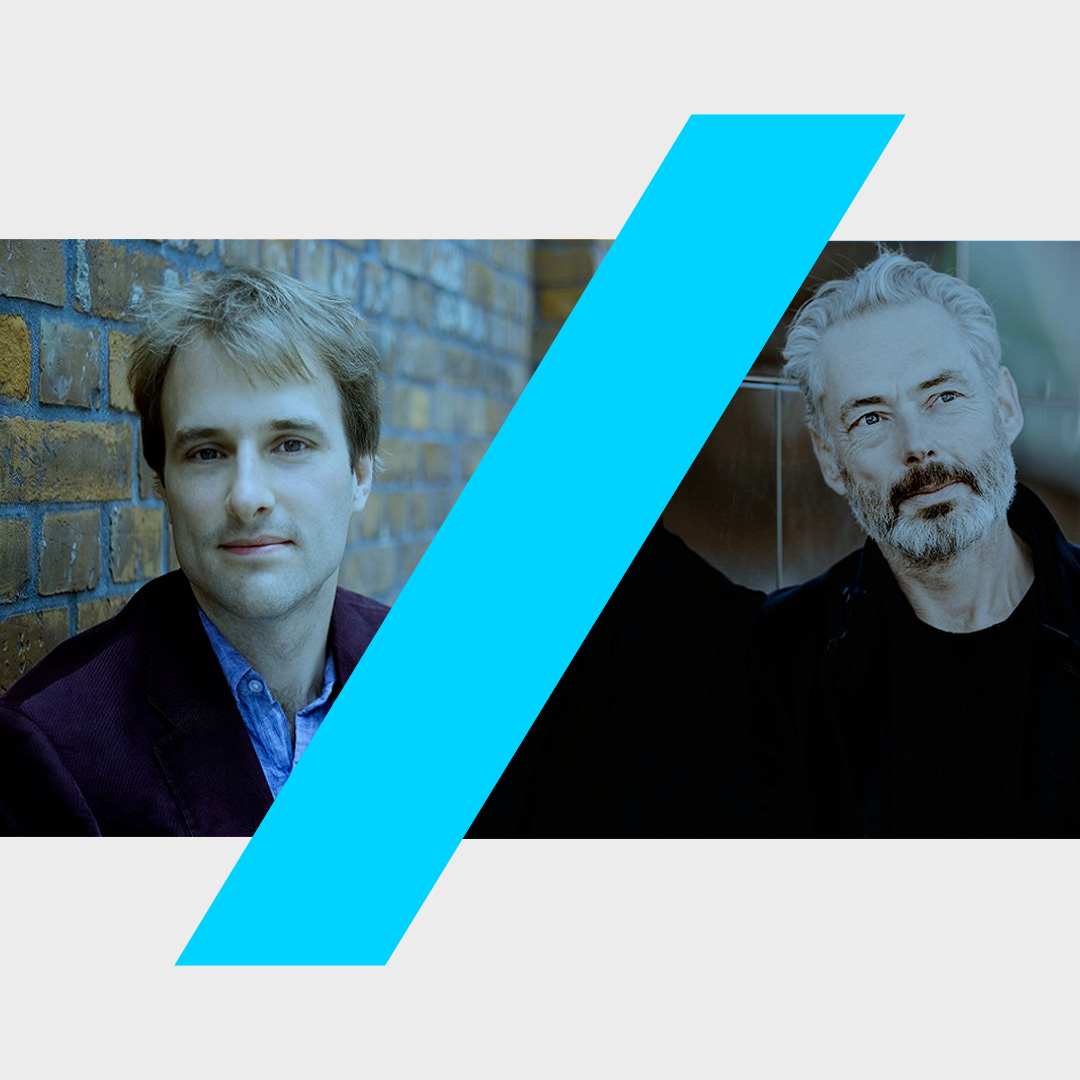
Thank you for joining us at Kings Place for this, our first in-person concert since the coronavirus lockdown. We are delighted to return to live music-making with this world premiere performance of a London Sinfonietta commission, featuring two of our long-term collaborators, Luke Bedford and Mark Padmore.
The London Sinfonietta is proud to return to live concert giving, and online events in June and July which includes 8 world premieres, 4 concerts with audiences, 5 online events and an commission performed with the power of cyclists. We are both championing new music and addressing the way society is now as it emerges from the lockdowns of the pandemic and faces up to the future of climate change. We are – like all arts organisations – excited about the prospects of playing to audiences again and producing new music events which are relevant to contemporary society.
We hope you enjoy this concert, and that you'll join us at our future performances.
Andrew Burke
Chief Executive and Artistic Director
Did you enjoy this concert? Please let us know by filling in this short survey
Peter Warlock The Curlew
Charlotte Bray Midnight Interludes
Luke Bedford In the Voices of the Living (world premiere)
Mark Padmore tenor
Geoffrey Paterson conductor
London Sinfonietta
This concert will last approximately an hour with no interval
If you enjoy our events, please do consider donating at whatever level you can afford to support the London Sinfonietta’s work and musicians both now and in the future – in schools, on the concert platform and in the community. It might be the price of a coffee, or the cost of a ticket to one of our live events.
Text to donate:
Text NEWMUSIC 5 to 70450 to donate £5
Text NEWMUSIC 10 to 70450 to donate £10
Text NEWMUSIC 20 to 70450 to donate £20
The first version of The Curlew was performed in 1920 and consisted of five settings of poems by WB Yeats. In 1922, in Wales, Warlock reconsidered the work. He dropped the original third and fourth songs, substituting the present long and complex third song. It was published in this revised form in 1922, receiving an award from the Carnegie Trust.
The substantial introduction opens with the cor anglais giving out the cry of the curlew, taken over by the viola. This is followed by the rocking theme on the strings also used in the Serenade. The flute then has the peewit’s call, with its many repeated notes. After a brief climax the rocking theme returns, then a cello solo leads into the first song. This passionate outburst is succeeded by a short interlude based on the introductory material. The second song is self-contained; it appeared in both versions of The Curlew, and was probably written about 1916. After the next interlude, a recitative for cor anglais and some development of the rocking theme, comes the new song, a setting of Yeats’s The withering of the boughs, with three strongly contrasted verses, each ending with the words which could be considered the core of the cycle: ‘The boughs have withered because I have told them my dreams’.
The final interlude is dominated by chords built up from piles of fourths, and more flute calls. This leads into the last song, virtually unaccompanied, until the viola ends the work with a modified inversion of the cor anglais opening phrase, subsiding onto an empty, hopeless, bare fifth with the cello.
I. He reproves the curlew
O Curlew, cry no more in the air,
Or only to the water in the West;
Because your crying brings to my mind
passion-dimmed eyes and long heavy hair
That was shaken out over my breast:
There is enough evil in the crying of wind.
II. The lover mourns for the loss of love
Pale brows, still hands and dim hair,
I had a beautiful friend
And dreamed that the old despair
Would end in love in the end:
She looked in my heart one day
And saw your image was there;
She has gone weeping away.
III. The withering of the boughs
I cried when the moon was murmuring to the birds,
'Let peewit call and curlew cry where they will,
I long for your merry and tender and pitiful words,
For the roads are unending, and there is no place to my mind.'
The honey-pale moon lay low on the sleepy hill,
And I fell asleep upon lonely Echtge of streams.
No boughs have withered because of the wintry wind;
The boughs have withered because I have told them my dreams.
I know of the leafy paths [that] the witches take,
Who come with their crowns of pearl and their spindles of wool,
And their secret smile, out of the depths of the lake;
I know where a dim moon drifts, where the Danaan kind
Wind and unwind their dances, when the light grows cool
On the island lawns, their feet where the pale foam gleams.
No boughs have withered because of the wintry wind;
The boughs have withered because I have told them my dreams.
I know of the sleepy country, where swans fly round
Coupled with golden chains, and sing as they fly.
A king and a queen are wandering there, and the sound
Has made them so happy and hopeless, so deaf and so blind
With wisdom, they wander till all the years have gone by;
I know, and the curlew and peewit on Echtge of streams.
No boughs have withered because of the wintry wind;
The boughs have withered because I have told them my dreams.
IV. Interlude
V. He hears the cry of the sedge
I wander by the edge
Of this desolate lake
Where the wind cries in the sedge:
`Until the axle break
That keeps the stars in their round,
And hands hurl in the deep
The banners of East and West,
And the girdle of light is unbound,
Your breast will not lie by the breast
Of your beloved in sleep.'
Written to sit alongside ‘Midnight Closes’, my song cycle for soprano and piano, these three short pieces take inspiration from the Thomas Hardy poems set. Small fragments from the songs were used as starting points in the composition of each piece.
I ‘A minute more…’
II Indecision
III ‘… do I dare?’
It begins and ends with Shakespeare.
When first working on this piece, I spent some months trying to set some of the primary sources connected to his life. It was only when, by chance, I read Stephen Greenblatt’s words, which now make up the opening song, that the true focus of the piece became clear. I would find a series of texts, all concerned with how the past speaks to us, and how we speak with the voices of the past. This desire to speak across the centuries, and the simultaneous clear-eyed knowledge of its impossibility, creates the emotional charge of the piece.
So following Greenblatt, we have Petrarch, writing in 1338, on how his books speak to him across time and space. And, importantly for us today: how fragile books are; how knowledge and culture can so easily be lost. The third song is a short sentence from Joyce’s Ulysses on the irreversibility of time. Then some fragments from Leopardi, who was writing in the nineteenth century about the first unearthing of ancient classical texts in centuries. And in the fifth and final song, a text created from Shakespeare’s words. These fragments were assembled from a search for the phrase "after the” in his works. There is a sense of aftermath here, but without an easy resolution.
From early on, I knew that I wanted this to be an intimate piece. The finished work is for tenor and six instruments, made up of three pairs: violin and cello; flute and clarinet; piano and harp. The only additional instrument is the bass flute, whose low, haunting tone appears in the odd-numbered movements.
I finished the work in May 2019, and had no idea that its premiere would be delayed by an event that meant almost all live culture was abruptly stopped for over a year. I feel humble that my work will be one of the first compositions premiered in the aftermath of the Covid-19 pandemic. And hope its theme of the voices from the past, and the fragility of culture in the present, will speak to you, the audience.
I
I began with the desire to speak with the dead.
If I never believed that the dead could hear me, and if I knew that the dead could not speak, I was nonetheless certain that I could re-create a conversation with them. Even when I came to understand that in my most intense moments of straining to listen all I could hear was my own voice, even then I did not abandon my desire. It was true that I could hear only my own voice, but my own voice was the voice of the dead, for the dead had contrived to leave traces of themselves, and those traces make themselves heard in the voices of the living.
II
Quos michi de cuntis simul omnia secula terris
transmittunt…
Et multa canunt…
Limen aperture
Convictumque petunt…
Dum frigida cedant
Nubila, Pyeria studiorum estate reversa.
They come to me from every century and every land.
Sometimes they sing for me.
They ask but for a home.
Till the clouds are gone, and the Muses rule again.
III
Hold to the now, the here, through which all future plunges to the past.
IV
E perchè tanti
Risorgimenti? In un balen feconde
Venner le carte…
O scopritor famoso,
Segui.
Why all these resurrections? Suddenly the pages wake and speak.
O famed discoverer, continue.
V
After the storm
After the moon
After the night’s shade
After the flesh
After the taste
After the slaughter
After the play
After the songs
After the last enchantment
It almost never happens: I read something and know that I must set it to music. But such was the case with Stephen Greenblatt’s words: “I began with the desire to speak with the dead.” Here, staring straight at me, was the starting point of a new work. Luke Bedford
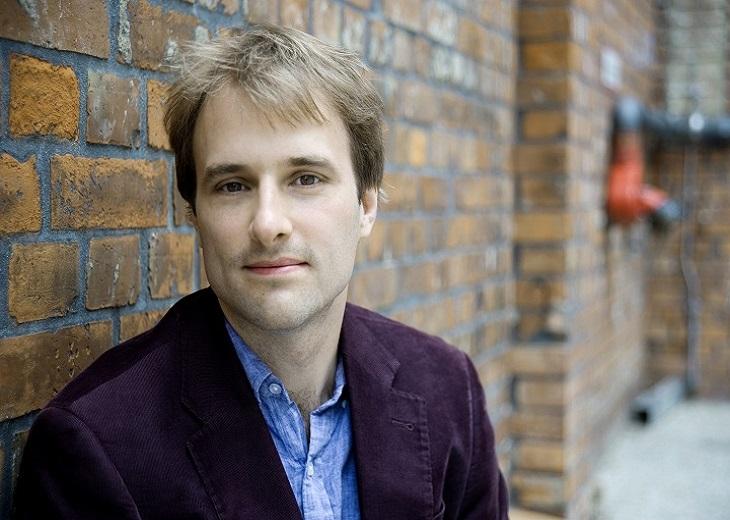
Luke Bedford is a young British composer who has quietly made a significant name among the composers of his generation with a series of award winning scores that are now being performed internationally.
Luke was born in 1978 and studied composition at the Royal College of Music and the Royal Academy of Music with Edwin Roxburgh and Simon Bainbridge.
He was the first ever composer in residence at the Wigmore Hall in London. Prizes include the prestigious Paul Hamlyn Artists Award in 2007, the Ernst von Siemens Musikstiftung Composer’s Prize in music 2012, and several British Composer Awards.
The song cycle Or Voit Tout En Aventure was premièred by the London Sinfonietta with Claire Booth (soprano) and Oliver Knussen in 2006. Tom Service wrote ‘one of the most outstanding pieces by any composer I’ve ever experienced – music of brooding expressive intensity and charged with that indefinable quality that makes a piece sound as if it was written out of sheer necessity.’ It has since received many further performances, including a tour across Europe by Ensemble Modern, with whom he also travelled to Johannesburg for a residency in 2008.
Bedford’s first opera Seven Angels was premièred in 2011 by the Opera Group and Birmingham Contemporary Music Group. His second highly acclaimed opera, Through His Teeth (libretto: David Harrower) was premièred at the Royal Opera House in 2014. Both have received further productions in Germany and the USA.
A new orchestral score Instability, commissioned by the BBC Proms, was premièred in August 2015 by the BBC Philharmonic Orchestra and Juanjo Mena. A concerto for the Arcis Saxophone Quartet and Deutsche Symphonie Orchester was premièred at the Berlin Philharmonie in October 2017.
A portrait CD of his music was produced by Col Legno in 2012, and a studio recording of Through His Teeth was released on the bastille musique label in autumn 2017.
Recent works include: In The Voices Of The Living, written for Mark Padmore and the London Sinfonietta, and Staggered Nocturne, a percussion concerto for Colin Currie and the Philharmonia.
One of the most outstanding pieces by any composer I’ve ever experienced Tom Service on Bedford’s 2006 London Sinfonietta commission Or Voit Tout En Aventure
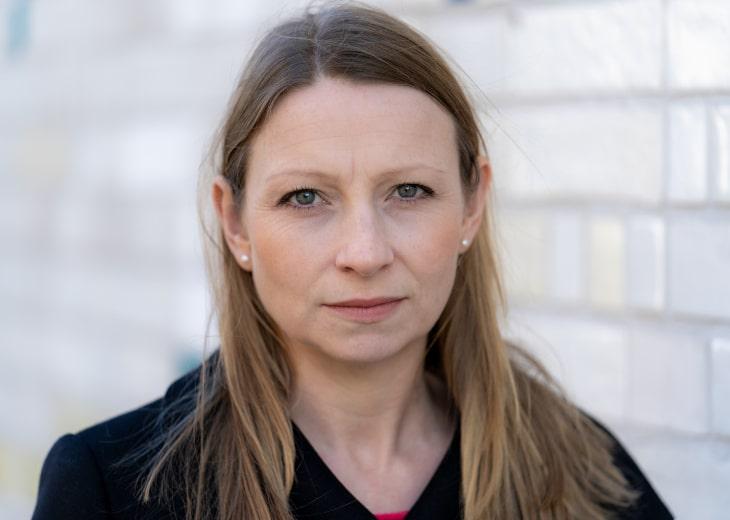
The young British composer Charlotte Bray’s music is exhilarating and vivid, with a richly expressive lyrical intensity. She draws inspiration from her surroundings, including human encounters and political events. Poetry, visual art, and nature also serve as impulses for her creative work.
Charlotte Bray studied with Mark Anthony Turnage at the Royal College of Music after taking composition classes with Joe Cutler at Birmingham College of Music, where she’d initially enrolled as a cellist. She further honed her compositional craft in masterclasses with Oliver Knussen, Magnus Lindberg, and Augusta Read-Thomas, among others.
She now works with orchestras such as the London Symphony Orchestra, the London Philharmonic Orchestra, the BBC Scottish and BBC Symphony Orchestras, and with ensembles such as London Sinfonietta, Britten Sinfonia and the Birmingham Contemporary Music Group. Renowned conductors have performed her work including Sir Mark Elder, Oliver Knussen, Sakari Oramo, Daniel Harding and Jessica Cottis. Her compositions have been performed at the BBC Proms and at festivals in Aldeburgh, Tanglewood, Aix-en-Provence, and Verbier.
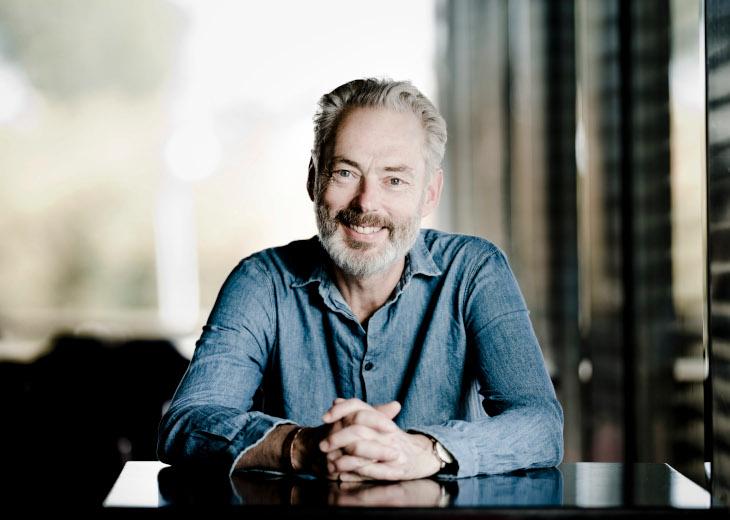
Mark Padmore was born in London and studied at King’s College, Cambridge. He has established an international career in opera, concert and recital. His appearances in Bach Passions have gained particular notice, especially his renowned performances as Evangelist in the St Matthew and St John Passions with the Berlin Philharmonic Orchestra and Sir Simon Rattle, staged by Peter Sellars.
In opera Mark has worked with directors Peter Brook, Katie Mitchell, Mark Morris and Deborah Warner. Work has included the leading roles in Harrison Birtwistle The Corridor and The Cure at the Aldeburgh Festival and Linbury Theatre, Covent Garden; Captain Vere in Britten Billy Budd and Evangelist in a staging of St Matthew Passion both for Glyndebourne Festival Opera; Third Angel/John in George Benjamin Written on Skin with the Royal Opera, Covent Garden and the world premiere of Tansy Davies Cave with the London Sinfonietta. Most recently, he appeared in a new ROH production of Britten’s Death in Venice, where his performance was described as a “tour de force” and “exquisite of voice, [presenting] Aschenbach’s physical and spiritual breakdown with extraordinary detail and insight”
In concert Mark performs with the world’s leading orchestras. He was Artist in Residence for the 2017-18 Season with the Berlin Philharmonic Orchestra and held a similar position with the Bavarian Radio Symphony Orchestra for 2016-17. His work with the Orchestra of the Age of Enlightenment has involved projects exploring both Bach St John and St Matthew Passions and has attracted worldwide acclaim.
Mark was voted 2016 Vocalist of the Year by Musical America and was awarded an Honorary Doctorate by Kent University in 2014. He was appointed CBE in the 2019 Queens’ Birthday Honours List.
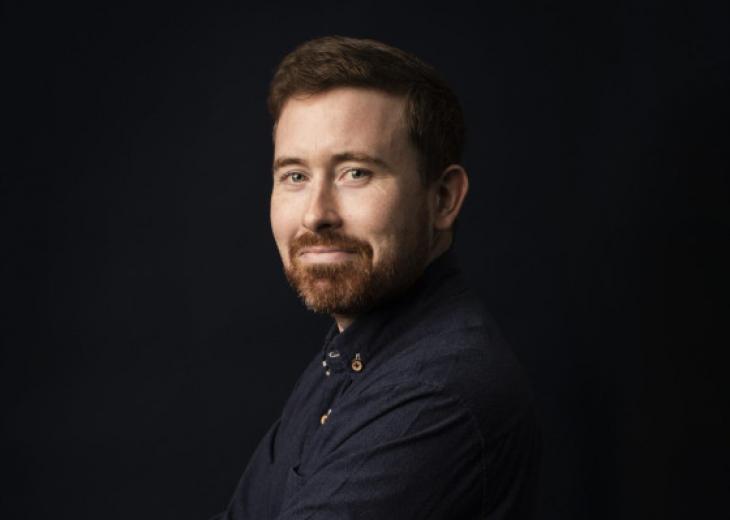
British conductor Geoffrey Paterson is admired for his impressive grasp of detail, responsiveness to musicians, and his ability to shape and make music from the most complex scores with natural authority.
Plans in 20/21 include a return to the Dutch National Opera, a streamed BBC Prom from the Royal Albert Hall with the London Sinfonietta (whom he conducts regularly) and appearances with the BBC National Orchestra of Wales, Royal Liverpool Philharmonic, Orchestra of the Age of Enlightenment, Copenhagen Philharmonic, Nash and Asko Schoenberg ensembles.
Recent highlights have included Philharmonia Orchestra, Danish National Symphony Orchestra, Aurora Orchestra, Orchestre National de Lille, National Orchestra of Belgium, Basel Sinfonietta, BBC Scottish Symphony Orchestra and Scottish Chamber Orchestra. He has also conducted at English National Opera (Philip Glass’ Orphée), Bayerische Staatsoper (Menotti’s The Consul, Max Richter and Saariaho ballets), Royal Danish Opera (Die Fledermaus, Porgy and Bess, and Prokofiev’s Cinderella), Opera North (La bohème), Glyndebourne on Tour (Die Entführung aus dem Serail) and Music Theatre Wales (Dusapin and Eotvos). He was a Jette Parker Young Artist at Covent Garden, subsequently conducting operas by HK Gruber (also in Bregenz), Massenet (recorded for Opera Rara), and world premieres by Birtwistle and Tansy Davies.
Geoffrey studied composition with Alexander Goehr at Cambridge and then went to the Royal Scottish Academy of Music and Drama. He won First Prize and Audience Prize at the 2009 Leeds Conductors Competition. He participated in masterclasses with Pierre Boulez in Luzern, and assisted Antonio Pappano, Mark Elder, Andris Nelsons and Daniele Gatti whilst at Covent Garden, and Kirill Petrenko at Bayreuth for two seasons.
Karen Jones flute/bass flute
Melinda Maxwell cor anglais
Timothy Lines clarinet
Jonathan Morton* violin
Elizabeth Wexler violin
Paul Silverthorne* viola
Tim Gill* cello
Helen Tunstall* harp
Elizabeth Burley piano
*London Sinfonietta Principal Players